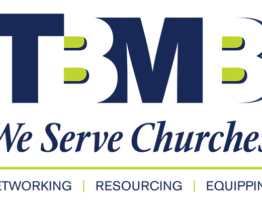
David Platt
It was a dark day two weeks ago when International Mission Board President David Platt stepped to the microphone to inform Southern Baptists that 983 missionaries and 149 IMB staffers were stepping away from their involvement in taking the gospel to the nations. Dr. Platt described it best when he spoke of the “heaviness” of the day. I agreed, and wondered, “How’d we get here?”
That’s a question worth exploring. It is important to learn from our past so that we can make necessary changes that positively impact our future. There are lessons here for all of us, and as Christians, we need to pause and take stock in how this applies to us individually and collectively.
I love the work of the IMB’s missionaries and staff. I was an IMB trustee for 10 years. They were inspiring. It was also a joy to pastor locally and global-minded churches. Missions became part of our DNA, and we saw tenfold increases in giving through the Lottie Moon Christmas Offering, Cooperative Program, and other missions offerings.

Randy C. Davis
I’d love to see every church capture that same passion for missions. Millions of people living in Tennessee, and billions of people living around the world, need our churches to have a passion for reaching them with the gospel. To get there, we need to understand how we got here, to this moment of downsizing our missionary force.
Here are six observations I believe are part of the reason the IMB and Southern Baptists have had to take what I hope is a temporary step back from the extent to which we have participated in the Great Commission.
(1) We’ve lost evangelism as a priority. Bringing spiritually lost people to Christ creates the need for churches; not the other way around. What is happening overseas is a reflection of our stateside approach. Southern Baptists must recapture a zeal for clear gospel proclamation bathed in prayer with the intention of seeing people come to saving faith in Jesus Christ.
(2) We’re failing at discipleship. Evangelism and discipleship should be two sides of the same coin. Failing to grow mature believers who understand intentional personal evangelism, continued discipleship and biblical stewardship has come home to roost. Missionaries, and the resources to support them, will come from among discipled believers.
 (3) We’ve become financially selfish. People once gave generously to their local churches, and local churches gave generously to the Cooperative Program. Just a few decades ago the average church invested 10 percent of its Sunday offerings in the Cooperative Program to support missions, education and compassion ministries, then gave an additional 15 to 20 percent for other Great Commission causes. Now Cooperative Program giving is half what it was 25 years ago. Generous Cooperative Program giving once exponentially grew our missions endeavor and I believe it can once again.
(3) We’ve become financially selfish. People once gave generously to their local churches, and local churches gave generously to the Cooperative Program. Just a few decades ago the average church invested 10 percent of its Sunday offerings in the Cooperative Program to support missions, education and compassion ministries, then gave an additional 15 to 20 percent for other Great Commission causes. Now Cooperative Program giving is half what it was 25 years ago. Generous Cooperative Program giving once exponentially grew our missions endeavor and I believe it can once again.
(4) We’ve developed blurred vision. Through the years our focus shifted to maintaining the “machine” more than the mission. Yeah, I get that is the label hung around the neck of state conventions, but let’s all address this issue with integrity. The same can be said for all SBC entities. Let’s get our eye back on the ball and regain the passion that used to drive our strategies. Let’s respect what Dr. Platt calls the “Southern Baptist Ecosystem” of churches, state conventions, associations, and local and national entities working in cooperation.
(5) We’ve become prideful. We’ve developed an intellectual arrogance that fuels a personal arrogance that draws attention to ourselves rather than Jesus. The result is a latent disrespect for one another. Leaders should be locking hearts in unity rather than butting heads. Please, let’s all take a breath, strive for humility and think more highly of others than we do ourselves.
(6) We’ve created unrealistic expectations. The IMB has been diligently pressing into the world but it is a problem that staffing had to be reduced by more than 20 percent to bring expenditures in line with giving. What Dr. Platt did was difficult, and we need to pray for his team as it seeks to build stronger fiscal accountability.
This list isn’t comprehensive and remember these are my observations as I look across the SBC landscape. Now that I’ve identified these six challenges, I intend to share in the coming columns how I believe we can move forward as a network of churches.
It is a joy to be on this journey with you.








